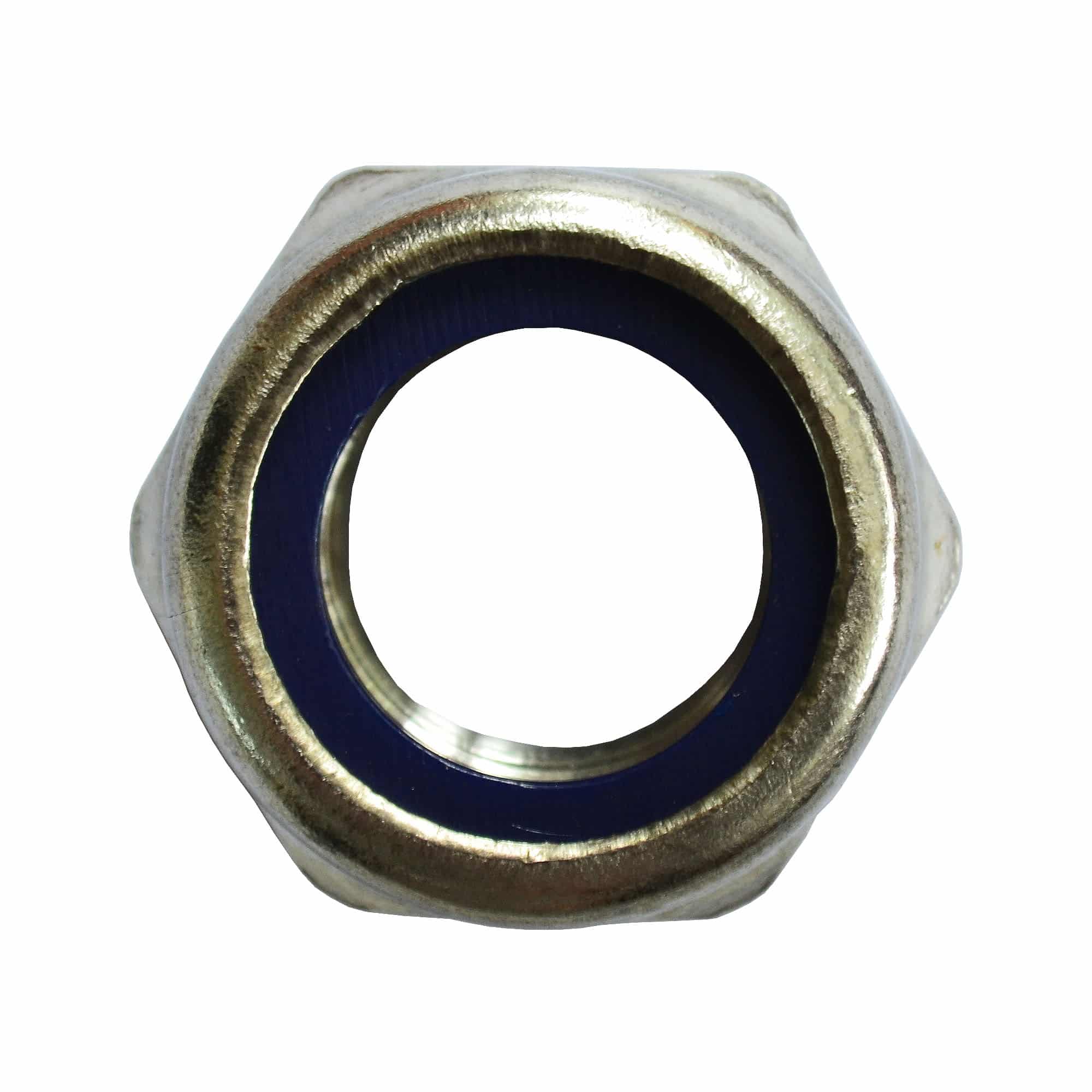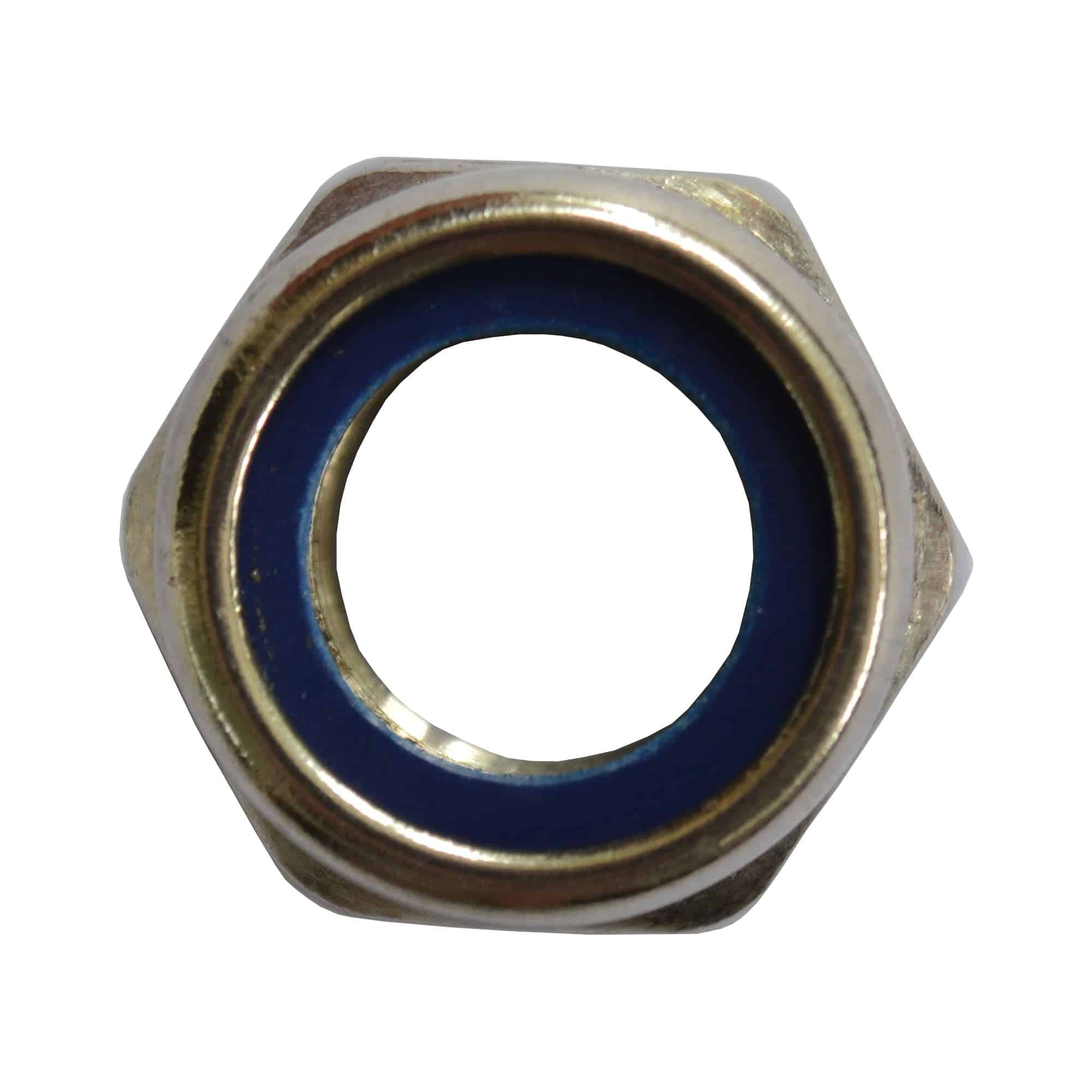- Massive Range
- FREE UK Delivery
- Rapid Dispatch
- Massive Range
- FREE UK Delivery
- Rapid Dispatch
- Massive Range
- FREE UK Delivery
- Rapid Dispatch
£3.95 – £208.62 inc VAT

Secure payments taken with:

This website is secured:
£ MULTIBUY SAVINGS – Order 3 For 10% Off
✔ Specialists In Rapid Shipments Of Any Size
✔ FREE UK Delivery Included
✔ Immediate Express Dispatch From Stock
✔ Tracked Delivery with Order Updates
✔ 30-Day Returns Accepted
@ ☏ Larger Pack Quantities Available
Are you in need of durable and reliable nuts that can stand up to even the harshest conditions? Look no further than M12 Nyloc Nylon Lock Nuts from Speciality Metals! These versatile nuts are made from A4 Grade 316 stainless steel, ensuring they’re strong enough for even heavy-duty projects. Plus, the nylon lock ensures a secure fit that’s resistant to vibrations. Better yet, these nylon lock nuts are low maintenance, requiring little upkeep while providing corrosion resistance that’s perfect for marine environments. Don’t settle for less – make sure your projects are built to last with M12 Nyloc Nylon Lock Nuts from Speciality Metals!

Top quality stainless steel Nyloc nylon lock nuts supplied straight from Warrington, UK.
Speciality Metals offer a massive range of metal products to suit all levels of budget and any size of job. These nuts are offered to compliment our range of nuts, bolts & washers. We pride ourselves on our low prices and rapid fulfilment. Our fasteners are available from immediate stock, so dispatch would be fair immediate.
Speciality Metals’ M12 Nyloc Nylon Lock Nuts are one of the most versatile and durable fasteners available. This stainless steel nut is corrosion-resistant and is ideal for marine environments since it is made of 316 Grade A4 stainless steel. Additionally, they’re extremely secure, ensuring your connections remain stable. This nylon lock nut is an excellent solution for anyone seeking a long-lasting, reliable solution with low maintenance requirements. With Speciality Metals, you can rely on top-quality fasteners for your boat or construction project.
Key product details:
Speciality Metals is known to be the United Kingdom’s best up-and-coming small-quantity metal company.
Furthermore we stock a vast range of plain wire mesh and perforated metal options that compliment our sheet metal range perfectly.
Over 50,000 customers of Specialty Metals are provided with fast, friendly customer service every year. We’re the place to try when you need metal of any shape and size. We’re based in Warrington, UK. We pride ourselves on our rapid turnaround and a large range of options.
Nylon lock nuts, also known as Nyloc nuts, can typically be replaced, but there are several important factors to consider. First, ensure that the replacement nut meets the same specifications as the original, such as dimensions, thread count and material, to guarantee compatibility with the existing bolt or screw. The locking capability of the nylon insert may diminish over time or after multiple uses, making replacement advisable. In critical applications like automotive or structural assemblies, always consult manufacturer guidelines or an engineering expert for specific replacement protocols, as some applications may necessitate a new nut for each assembly. Make sure that the replacement nut complies with any necessary quality and certification standards and use the appropriate tools and torque specifications for the installation. Finally, responsibly dispose of the old Nyloc nut in accordance with local or federal regulations, especially if it’s made from a material requiring special disposal methods.
Nylon lock nuts, commonly referred to as Nyloc nuts, are generally not considered fire-resistant due to the nylon insert that provides the locking mechanism. While the metal part of the nut—often made from materials like stainless steel or carbon steel—may have a high melting point, the nylon insert is susceptible to melting, deforming or even combusting at high temperatures. This could compromise the nut’s locking ability and overall integrity. Nylon typically starts to deform at temperatures around 220°F (105°C) and melts at approximately 420°F (220°C), although these temperatures can vary based on the specific type of nylon used. For applications that involve exposure to high temperatures or fire, alternative locking mechanisms, such as all-metal lock nuts, are generally recommended. It’s crucial to consult with engineering experts and refer to manufacturer specifications to determine the most suitable fastening solution for environments with elevated thermal risks.
Nylon lock nuts, also known as Nyloc nuts, can be used in freshwater applications, but their suitability largely depends on the material of the metal part of the nut and the specific conditions of the environment. For instance, stainless steel Nyloc nuts offer better corrosion resistance compared to those made from plain carbon steel, making them a more suitable choice for freshwater applications. However, the nylon insert may degrade over time due to prolonged exposure to water, though generally at a much slower rate in freshwater than in saltwater. It’s essential to note that while the metal part may be corrosion-resistant, the nylon insert is not impervious to degradation. For applications where the Nyloc nuts will be consistently submerged or exposed to water, it’s advisable to consult the manufacturer’s guidelines and perhaps conduct long-term exposure tests to verify their suitability for your specific freshwater application. Always consider the factors like water quality, temperature and pressure when selecting Nyloc nuts for use in any water-based environment.
Welding nylon lock nuts, also known as Nyloc nuts, is generally not recommended for several reasons:
Nylon Melting: The heat generated during welding will likely melt the nylon insert, rendering the locking feature useless.
Material Integrity: The high temperatures involved in welding could compromise the structural integrity of the metal part of the nut, potentially leading to failure under load.
Chemical Emissions: Melting nylon could release harmful fumes, posing a health risk.
Inconsistent Properties: The heat from welding can induce inconsistent mechanical properties across the nut, affecting its reliability and performance.
Alternative Methods: If you require a secure, permanent connection, there are other mechanical fastening methods and specialised types of nuts designed for such applications that don’t require welding.
Expert Consultation: If welding is the only viable option for some reason, it would be essential to consult with welding experts and material scientists to assess the feasibility and risks, though it remains a less-than-ideal solution.
In summary, while it’s technically possible to weld the metal part of a nylon lock nut, doing so is fraught with complications and risks, including the loss of the locking feature and potential structural failure. Alternatives such as using all-metal locking nuts or other types of permanent fasteners are generally more advisable.
Check out our recent article ‘Unlocking the Benefits of Nyloc Nuts: The Ultimate Guide‘ for a deeper dive into nyloc nuts. Our goal for our blogs and help guides is to answer as many questions as possible to help to explain the possibilities of mesh to our customers.
We are also very proud of our ever expanding YouTube channel.
Contact us today if you have any questions at all. We are always really keen to help in any way that we can.
We are also very proud of our highly popular eBay store, check us out there too.
Thank you for checking out our product.
£13.50 – £260.40 inc VAT

£13.50 – £260.40 inc VAT

Speciality Metals
Unit 1, Farrell Street, Warrington,
Cheshire, WA1 2WW, United Kingdom
Quick Links
Payment Options
